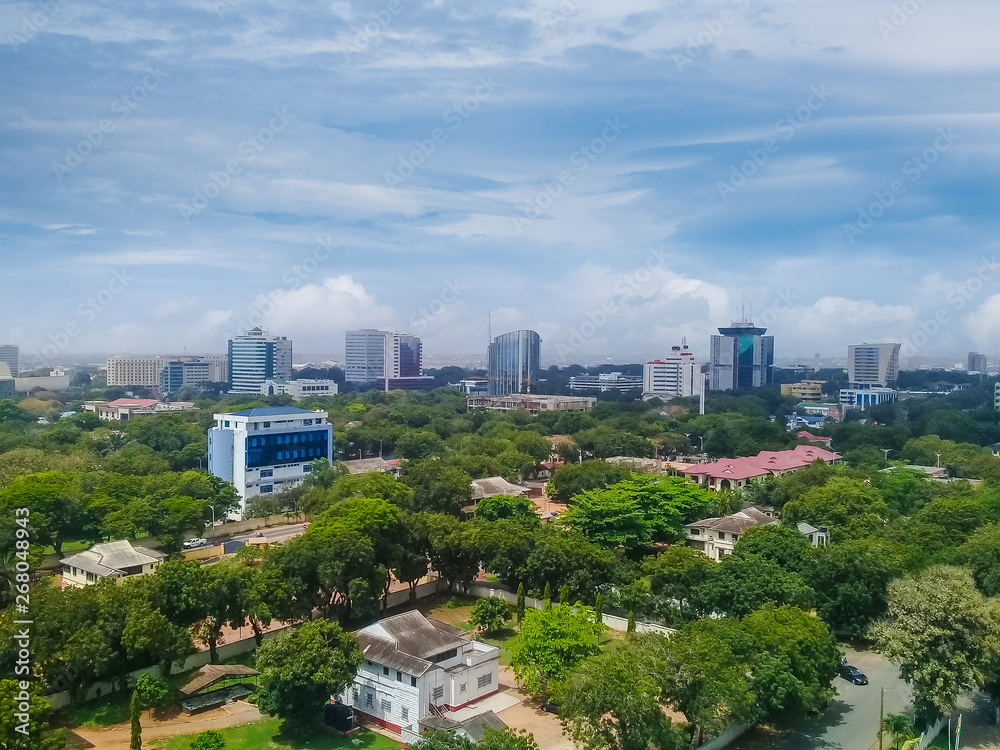Introduction:
Within the ever-evolving realm of real estate development, the pivotal role of landscape architecture cannot be understated. Beyond its aesthetic contributions, deliberate landscape design plays a crucial role in defining the character and value of properties. Over the past 17 years, Nigeria has witnessed the transformative outcomes arising from the symbiotic relationship between landscape architecture and real estate development.
In the competitive arena of real estate, the significance of first impressions cannot be overstressed. A meticulously designed landscape serves as the welcoming committee, leaving a lasting impression on potential buyers and tenants. In Nigeria, developers are increasingly acknowledging the importance of well-designed green spaces, entrance ways, and communal areas to elevate the overall appeal of their projects. This emphasis on aesthetics significantly contributes to the development of vibrant, attractive communities.
Research consistently underscores the positive impact of intentional landscape design on property values. In Nigeria’s rapidly urbanizing landscape, properties featuring well-thought-out landscapes command higher prices. A 2014 study conducted in Singapore revealed that properties with carefully planned green spaces and amenities can experience up to a 20% increase in value compared to those lacking such features.
Beyond financial considerations, the incorporation of landscape design principles enhances the overall quality of life for residents. In Nigeria’s bustling urban centres, the demand for green spaces is on the rise, reflecting a growing recognition of the importance of a balanced lifestyle. This can be seen in the development of parks like JTT Park and Ndubusi Park in Lagos that have significant footfall. Thoughtfully designed landscapes provide opportunities for recreation, social interaction, and relaxation, fostering a sense of community among residents.
Nigeria, like many countries, grapples with environmental challenges such as climate change, flooding, and rapid urbanization. Landscape architecture emerges as a valuable tool for mitigating these challenges. Sustainable design practices, including natural drainage solutions, rainwater harvesting, the use of native plants, and energy-efficient lighting, are becoming integral components of landscape design in real estate projects. Developers embracing these features not only contribute to environmental conservation but also appeal to an expanding market of environmentally conscious buyers.
Transformative Impact on Nigerian Real Estate:
The integration of landscape design into real estate development in Nigeria is exemplified by initiatives like the Lagos State Parks and Gardens Agency (LASPARK). Under the leadership of Governor B. Fashola, LASPARK not only beautified neglected spaces but also embraced sustainable practices, aligning with the global trend of environmentally conscious urban planning.
The proposed Abuja Centenary City project further underscores the transformative power of landscape design. Commencing infrastructure construction in 2018, this visionary project prioritizes green spaces while adopting sustainable drainage systems, promoting a harmonious coexistence of urban development and nature.
Private developers, including industry leaders like Mixta Africa, have accelerated this transformation. By creating estate developments seamlessly integrated into their respective natural environments, protecting local flora and fauna, implementing retention lakes to mitigate flooding and increase biodiversity, and utilising Sustainable Urban Drainage Systems (SUDS) to manage stormwater locally, to mimic natural drainage and encourage its infiltration, and passive treatment, these developers set a benchmark for environmentally responsible real estate development in Nigeria.
Conclusion:
In conclusion, the symbiotic relationship between landscape architecture and real estate development in Nigeria extends beyond aesthetics. It encompasses increased property values, enhanced quality of life, and a proactive response to environmental challenges. The fusion of aesthetics and environmental consciousness is not merely a trend; it represents a blueprint for shaping the future of Nigerian real estate.


